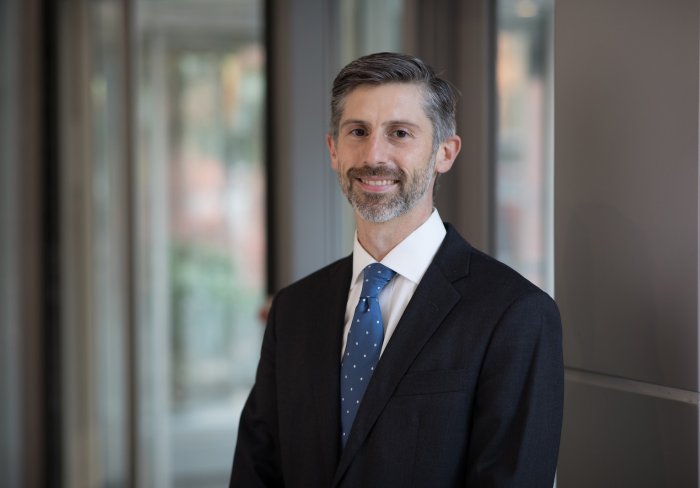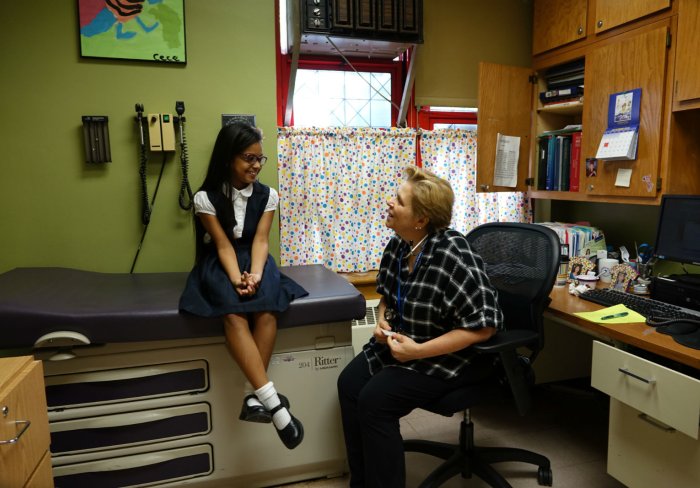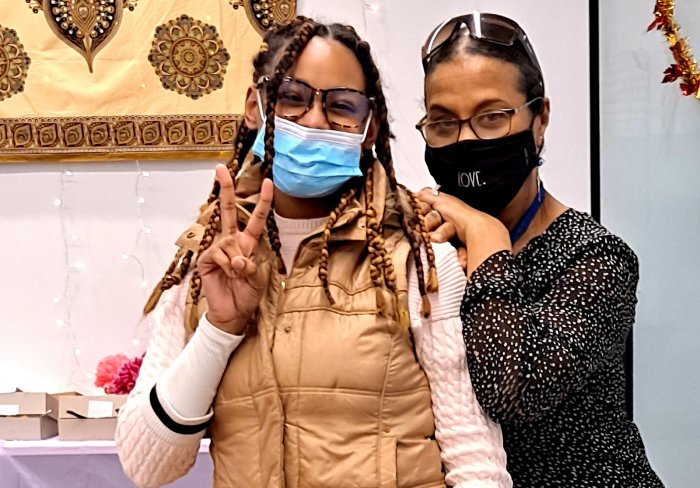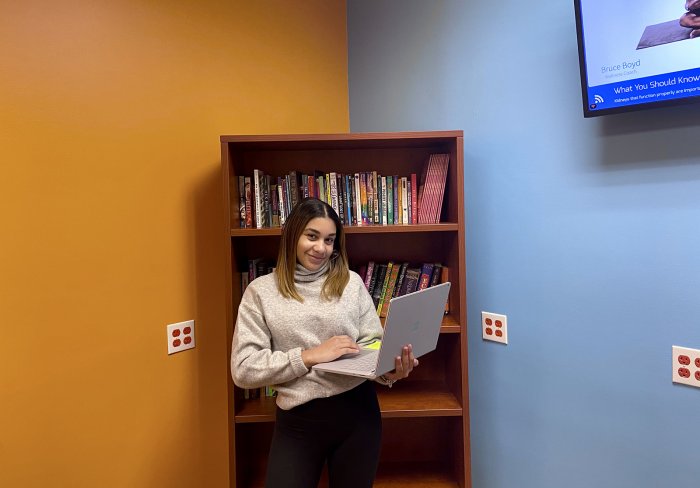For Elisa Angevin, a supervisor in our preventive program, there is no typical day on the job.
Elisa, who has been with Children’s Aid for four years, visits families for therapy sessions where they are – at home, at a Starbucks, or on the subway. The three sessions per week look different for every client based on his or her needs.
The coronavirus pandemic has changed the way Elisa supports her clients. She now relies on video conferences two times a week and does home visits only once. Limiting the number of home visits helps ensure her and her clients’ health and safety.
“It’s harder to get in touch with families over video chat but the motto of our staff is: whatever it takes,” she said. “The transition has been so much easier. This coronavirus is really scary stuff but they’re still going out in the field. It’s really cool.”
Elisa and her team are trained to conduct multisystemic therapy for families with a history of child abuse and neglect. This intensive program for families lasts about nine months and our therapists provide a variety of services such as home trauma treatment, substance abuse treatment, family therapy, and teach parenting and communication skills.
“I used to work in a residential treatment center and a hospital and what I was so frustrated by was that there were so many clients that needed more but they couldn’t access [these services] because of barriers,” she said.
The Children’s Aid program model enables staff to access services across highly bureaucratic systems – like schools and healthcare – that are often siloed and challenging for clients to navigate. Elisa says this access empowers staff to be much more resourceful and “eliminate most barriers” for her clients.
Though Elisa has always wanted to work with children, in her current role, she focuses on helping adults effectively cope with trauma so that they can be better parents.
“I really like the idea that we’re not just putting a band aid on the problem,” she said. “We’re actually stopping the cycle of abuse. A parent doesn’t abuse their kid because they don’t love their kid, it’s because of real issues that we actually get to the bottom of.”
There are days where Elisa works from 9 a.m. to 9 p.m. and it can be disappointing when she encounters roadblocks and challenges communicating with the families she serves. But Elisa knows how rewarding the work can be.
“A lot of these parents have been in the system for a really long time and they have a right not to trust you initially,” she said. “I don’t always get that rewarding ending but months later when a parent reaches out and says, ‘thank you, we’re doing so much better,’ that’s what I got into the job for.”







